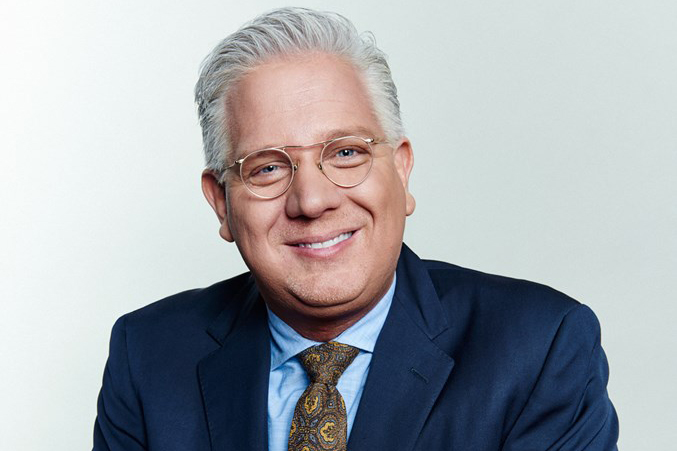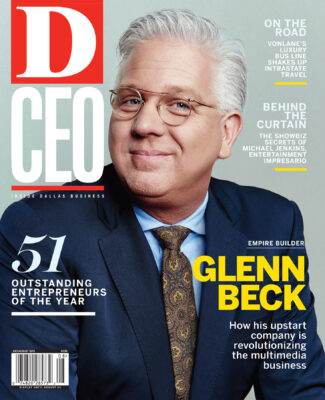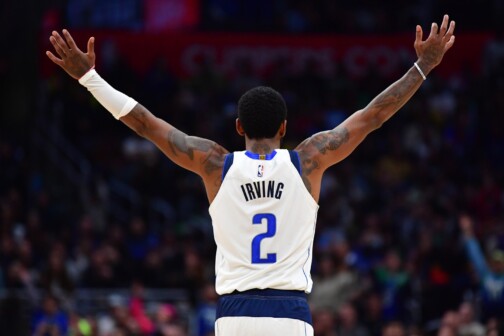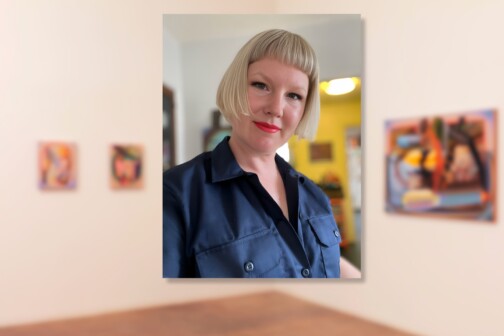When radio and TV host Glenn Beck left Fox News Channel in 2011, he got to North Texas as fast as he could. Here he presides over an entrepreneurial media empire called Mercury Radio Arts—a $90 million (annual revenue) multimedia company that produces and delivers content for radio, TV, the stage, and the Internet. The 250-plus-employee enterprise, which also includes a publishing imprint and a clothing line, operates locally in the former Studios at Las Colinas complex in Irving. That’s where we recently sat down with Beck for this interview, which has been edited for clarity and space.
D CEO: Some entrepreneurs succeed by fulfilling an unmet need. Others do it by building a better mousetrap. Does either describe your company?
Glenn Beck: I think both of those apply. There is a massively underserved, misunderstood audience in America that resides in the Heartland as much as it does in the inner cities. They’re not driven by politics, they’re not driven by anything but common sense and common principles and values—traditional things that are not based on being “anti” things, but being for things. They’re for families, for the bad guys going to jail—whether that’s in high finance or Washington or the burglar down the street. In the media, that’s not even understood anymore. So I think there’s a real hunger for, ‘Just tell me the truth, without the agenda.’ The building a better mousetrap part comes from what we’re doing with OTT. You’re starting to see real personalities go to the ‘Over The Top’ method that we created, which is to go out on your own and take your audience with you. That is the future.
Are originality and risk-taking important parts of your approach?
Yes. One of my core philosophies is, ‘Risk big, win big. Risk big, lose big. Know the odds before you put the money down on the table.’ I don’t go to Vegas, but a lot of people will tell us that we have risked everything. When I left Fox they all told me, huge risk. No, it wasn’t. I knew who my audience was. I knew what we could do, and I bet on myself. You have to risk, but you have to take intelligent risks.
Now is the time for ideas. We’re entering a whole new world. I thought five years ago that we were headed toward an Industrial Revolution that would just change the devices that we use. We’re not. We’re headed toward a Renaissance. This is the moment that I think our founders couldn’t have seen, but hoped for. Where each man could chart his own course—really truly chart his own course in a way that is beyond most people’s imaginations today.
All brought about by new technologies?
Yes. There’s a huge war going on between those who currently have power—whether you’re talking about the Federal Reserve, the government, the media networks, magazines, booksellers, whatever—and then this new way of, ‘I can write and publish my own book’ or ‘I don’t need the network anymore.’ These two forces are fighting against each other, and the one that is holding on by their fingernails is the one that’s going to lose, and that’s the old system. They are trying everything to hold on because they have billions of dollars in infrastructure that was built for 1950. We don’t need it anymore.
But, businesses aren’t even looking yet at things that we’re going to be facing in 2025, 2030. [Right now,] the Silicon Valley guys are going to investors and saying, ‘I don’t even know if this is legal. I don’t know how to do this, except I think the technology [is available to] put the cab industry out of business.’ So you’ll have probably at least a 50 percent turnover of jobs in the future, and it’s going to be a constant churn. What does that do to our society? What does that do to people? We have to start thinking those thoughts, and start training ourselves mentally for constantly [snaps his fingers] being questioned, and constantly being put out of business. It’s going to happen that fast.
I’ve read that you’re a great admirer of Walt Disney and Orson Welles. Are there other businesspeople who inspire you?
Steve Jobs. I was a huge fan of his products. I think the man changed the world. He was not just a visionary; he was an artist. I love the fact that he looked at his product as art: ‘We’re going to make it beautiful, and we’re going to do it because it matters to us.’ That in and of itself is inspiring. Elon Musk is tremendous—quite possibly the Nikola Tesla of our age. While the government was pouring billions of dollars into GM, Musk says, ‘I’m going to build a car from the ground up, away from the car companies, and I’m going to change the way car dealerships are done, and in the end, I might even power people’s houses with batteries, and change the way people’s houses are done.’ Why aren’t we talking about that? Why aren’t we as people holding up these brilliant entrepreneurs, these dreamers, today and saying, ‘Look how bright the future can be’?
Apparently that’s something you do at your company.
The philosophy that we adopt here comes from Thomas Jefferson. It was on the questioning of religion, and how to find the truth in religion, but I think it applies to all things. Religion at the time happened to be the untouchable. It was the one thing you didn’t question. Jefferson wrote in a letter to his nephew Peter Carr: ‘Question with boldness, even the very existence of God. For if there be a God, He must surely rather honest questioning over blindfolded fear.’ So our philosophy, and I think people’s philosophy, should be, there’s nothing untouchable. It’s our questioning that makes us take the next great step.
With all your various forays here—in TV, radio, books, even a clothing line—how do you keep from over-extending yourself, from spreading yourself too thin?
I surround myself with really good people. I know what my strengths are and, more important, I know my weaknesses. One of my strengths is, I could keep 5,000 people busy every day of the year including every holiday. I have a ton of ideas. My weakness is—pick one! That’s where I surround myself with really good people. We’re in the midst of restructuring my company right now to make sure that we are focused on the things that we do best, and super-serve our tribe. We got a little lost, I think, in, ‘Well, can we do it? If we can, let’s try it.’ Unfortunately, I think what that led to was a softening on one of our core values: The customer always comes first. Stop doing the things that you’re necessarily dreaming of, and listen to the customer, the person who is the end user or the potential end user. How can I make their life better?
So what new initiatives are you working on?
I recently got a disturbing news report from Norway that in 2017 they’re turning off the FM radio band. And Europe has already started—or will be starting—to no longer produce cars with AM radio. That should be a significant wakeup call to the American industry of radio, that radio as we know it is on the verge of profound change. Between the actual delivery system changing, and I believe the talk radio format aging, and a new dynamic millennial coming up who [views decision-making differently], we’re looking at pretty much a redo of radio and the talk format. We have a dynamic radio business here. But we’re about to put the hood up, take the engine out, and try to build something entirely different from the ground up—and this is the trick—without losing the current audience or business that we’re doing. We’re going to try to pull off a miracle here. But, somebody’s going to do it.
How does North Texas figure in your plans?
I think there’s a real potential for making Dallas another high-tech hub for the country—a mini-Silicon Valley. There are some really smart, wicked great people like Mark Cuban who are innovators and leaders here. We want them for the tech side here, for all the things that we’re doing. We’re looking at things like reimagining cameras and control rooms; we’re looking at some very high-tech innovation that could revolutionize television, the way it’s produced, from local to network. But I need great dreamers and doers who can pull it off.
Meet the other EY Entrepreneur of the Year finalists for 2015.
See why American Airlines’ Doug Parker is EY’s Entrepreneur of the Year for Transformation.






